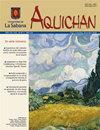护理领导力、相关社会形态和专业因素:领导者和评估者的认知
Q3 Nursing
引用次数: 1
摘要
目的:评价辅助护理专业人员的领导风格及其相关的社会人口学和专业因素。材料和方法:分析和横断面研究。样本包括75名护理专业人员和170名护理助理。采用多因素领导问卷对领导能力和组织结果变量进行评估。结果:主要的领导风格为:转换型(平均3.43)和事务型(3.40),这两种风格与满意度、效能感和额外努力具有很高的相关性。员工感知最少的领导风格是纠正/回避(2.10)。在变革型领导中,行为影响和激励动机在领导者的自我感知中得分较高。年龄、婚姻状况和生育子女在转换型和交易型领导风格上存在统计学显著差异;工作经验对交易型领导具有重要意义。结论:在他们的工作中,护理专业人员表示变革领导所固有的鼓励性做法,这与组织文化的变化有关,能够激励和激励下属超越常规,提高他们对职责的满意度和承诺,因此是卫生机构的一个重要因素。本文章由计算机程序翻译,如有差异,请以英文原文为准。
Nursing Leadership, Associated Sociodemographic and Professional Factors: The Perception of Leaders and Evaluators
Objective: To assess the leadership styles of the assistance Nursing professionals and their associated sociodemographic and professional factors.
Materials and methods: An analytical and cross-sectional study. The sample comprised 75 Nursing professionals and 170 Nursing assistants selected for convenience. The Multifactorial Leadership Questionnaire was applied to assess leadership and the organizational result variables.
Results: The predominant leadership styles were as follows: transformational (mean of 3.43) and transactional (3.40), which presented high correlation rates with satisfaction, efficacy and additional effort. The leadership style least perceived by the staff was corrective/avoidance (2.10). In transformational leadership, behavioral influence and inspirational motivation presented better scores in the leaders’ self-perception. Age, marital status and having children evidenced statistically significant differences with the transformational and transactional leadership styles; work experience was significant with transactional leadership.
Conclusions: In their work, Nursing professionals denote encouraging practices that are inherent to transformational leadership, which is related to changes in the organizational culture, leads to motivating and inspiring the subordinates to transcend the routines and increases their satisfaction and commitment to their duties, thus being an important factor in health institutions.
求助全文
通过发布文献求助,成功后即可免费获取论文全文。
去求助
来源期刊

Aquichan
NURSING-
CiteScore
1.10
自引率
0.00%
发文量
32
审稿时长
>12 weeks
期刊介绍:
Aquichan, a journal of medical and health sciences from the field of health sciences and, more specifically, nursing, publishes articles resulting from investigations from a point of view of epistemology, evidence-based practice, chronic care, promotion and prevention. The articles are for the academic and scientific community, both in Colombia and abroad.
The journal accepts original, previously unpublished papers in Spanish, English, and Portuguese, which are the product of a research or a review and which are not being evaluated by other scientific journals, either in print or electronic form.
 求助内容:
求助内容: 应助结果提醒方式:
应助结果提醒方式:


